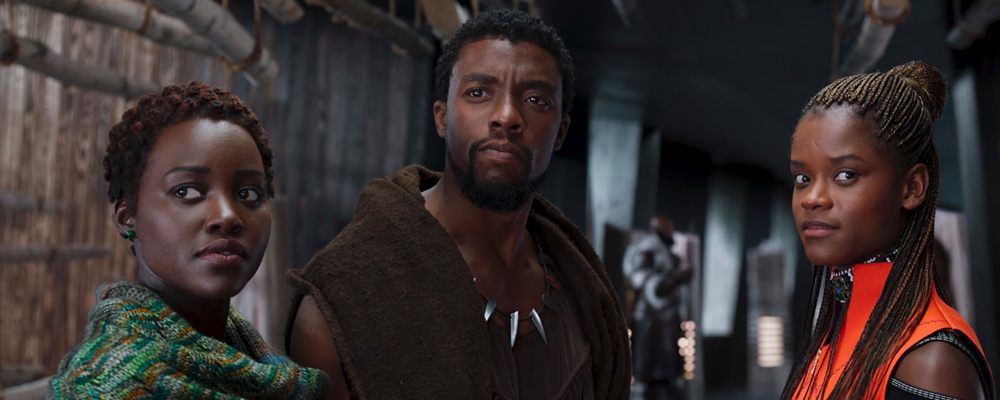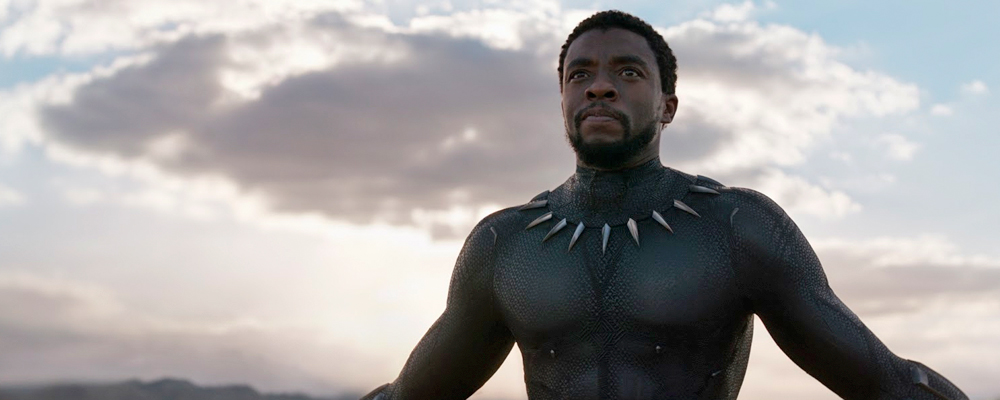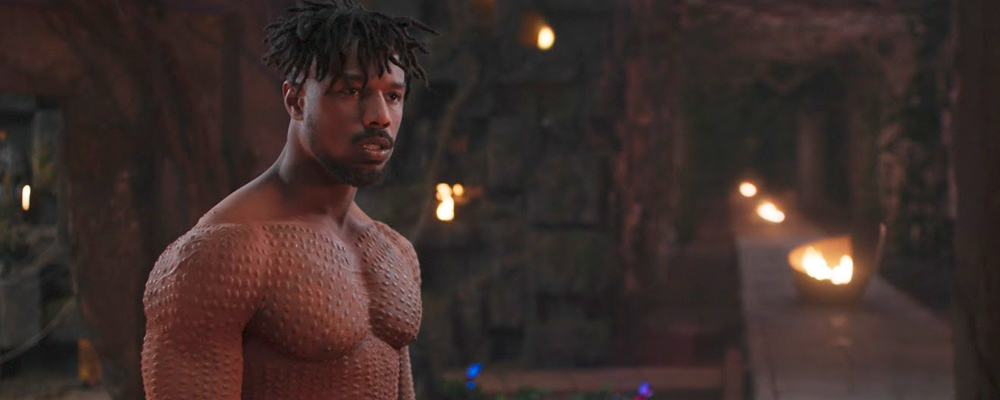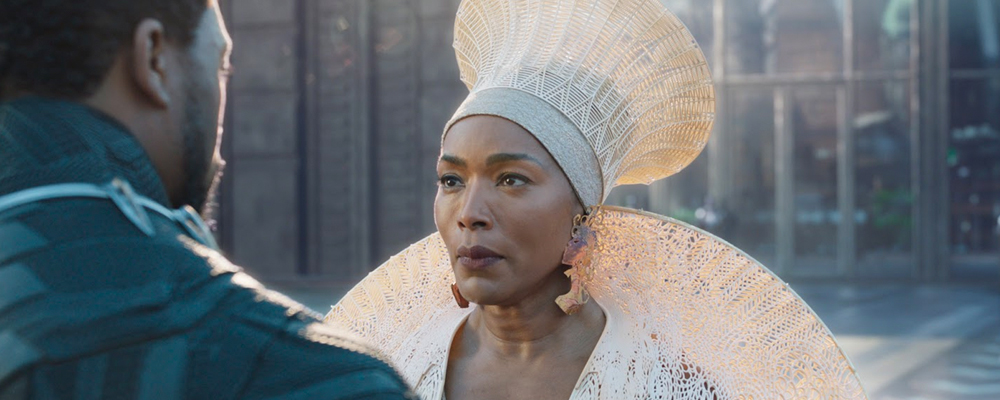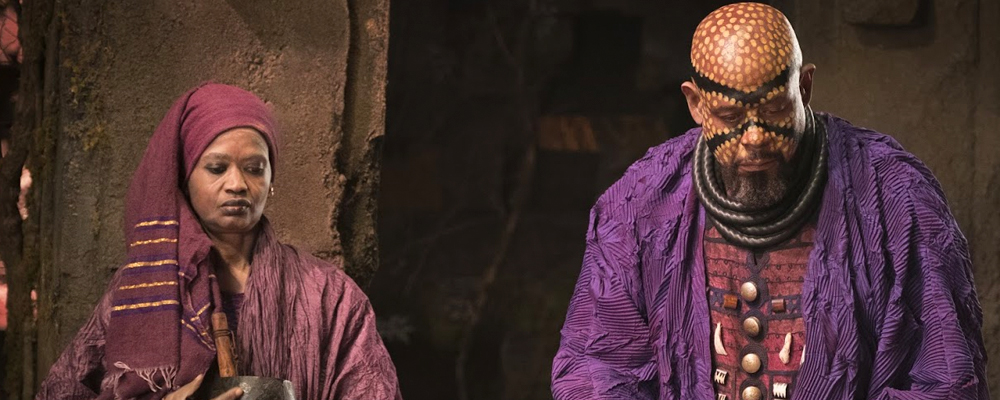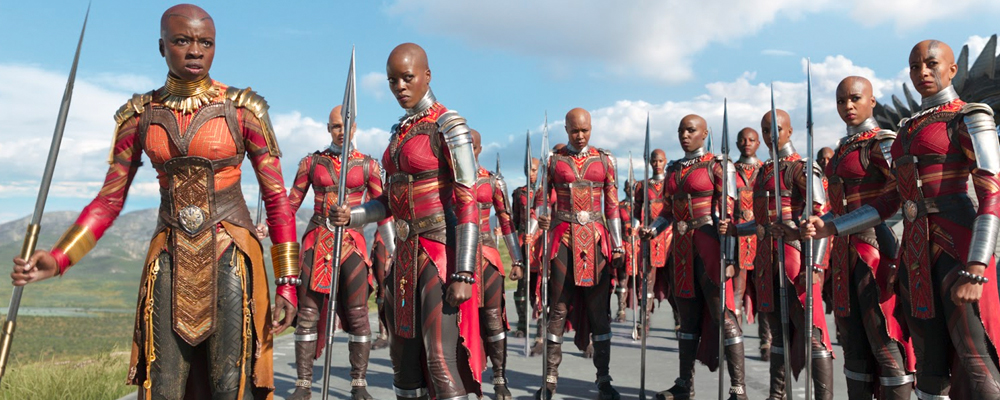‘Black Panther’ Star Chadwick Boseman and Cast Discuss Making the Groundbreaking Blockbuster
Alci Rengifo
“Black Panther“ is getting ready to conquer the box office as something both fun and unique. Directed by Ryan Coogler, it is a super hero movie made with artistry while breaking ground in the genre’s ability to celebrate cultural diversity without clichés. Like “Wonder Woman,” it features everything you would ever want in a blockbuster, but with a little more heart and soul. It takes place in the fictional African country of Wakanda, where King T’Challa (Chadwick Boseman) is crowned to rule over a nation of high technological advancement, but now threatened by a vicious South African smuggler (Andy Serkis) and Iraq War vet (Michael B. Jordan) seeking to take the throne. T’Challa must done the suit of the Black Panther, which gives him the necessary abilities to fight his enemies full throttle.
Director Ryan Coogler, Chadwick Boseman, Lupita Nyong’o, Angela Bassett, Forest Whitaker, Michael B. Jordan, and Letitia Wright, of the film’s stellar cast spoke with Entertainment Voice about the making of “Black Panther” and its cultural significance.
“We were in Zurich, yeah, in Zurich. And I was coming off of the red carpet for ‘Get On Up.’ And my agent was like, ‘You’ve got to get on the phone,’” said Chadwick Boseman, recalling how he was first told about being offered the role. “And the crazy thing is I didn’t even have international calling on my phone until that morning — and I heard, literally we heard somebody say, ‘Hey, get international on your phone. Call your mom.’”
For director Ryan Coogler, getting a chance to make this movie was an opportunity to tap into subjects close to heart. “I think it was — I mean, it’s something that I actually like talking about, because you know, for me, I grew up loving comic books. I love not just comic books, but I love pop culture,” said Coogler. “I love toys, actions figures, video games, all of that stuff. When I got older and realized that I wanted to make movies, right, that’s how I fell in love with internationalism, and cinema that left you with something to chew on, with something to think about.”
Forest Whitaker, who plays the wise elder Zuri, jumped in to opine on his initial impression of Coogler. “ I knew it from the moment that I met him. I mean, when he started to express himself, and I could feel, like, the center of what he wanted to communicate to the world, and how he wanted to touch the world, and it really was a really powerful thing to see,” he said. Whitaker helped producer Coogler’s breakthrough film, “Fruitvale Station,” and has seen the director grow into where he is now. “I was fortunate enough that he felt comfortable with us producing that for him, and working with him on it. I’m just blown away, you know, just watching his growth, every time, to see him really – how he’s able to just manifest so much importance in socially relevant moments, inside of things that we want to sit and watch.”
Letitia Wright, who plays T’Challa’s tech-genius sister Shuri, enjoyed the script’s balance of the male to female relationships. “I think — what I love about it, as well, with how it was written is that the men are always behind the women, as well,” she said. “So no one’s like undermined — like, the men are like, you know, ‘You shouldn’t be in technology, and you shouldn’t be in math.’ They’re like, ‘No, go ahead.’ Like, so T’Challa is like, ‘Go ahead, Sis. This is your department. This is your domain. Like, kill it.’”
Boseman added to that, “So you know, my older siblings, they raised me. And so to a certain degree when I say, you know, I allow her — you see the genius that is inside the people that come after you. And if you have an ancestor around, they’re looking at you like, ‘I know you’re looking up to me, but we’re looking up to you.’”
Lupita Nyong’o plays the Wakandan operative Nakia, who is also T’Challa’s former lover but remains fiercely loyal to the throne, especially liked the film’s empowerment of its female cast. “Well I would say what I love about the way this film represents women is that each and every one of us is an individual, unique and we all have our own sense of power and our own agency and we hold our own space without being pitted against each other,” she said. “And I think that’s a very, very powerful message to send to children, both male and female, this idea. I think often times in movies we fall into that trap where women, there’s very few of us and then we are against each other.”
Coogler added that the celebration of women isn’t just seen on the screen. “From day one and our crew were just women who were the best people for the job. They weren’t hired because they were women, they were hired because they were the best for the job and that was our cinematographer Rachel Morrison, our costume designer Ruth Carter, production designer Hannah Beachler and our assistant director who was responsible for getting her team going Lisa Satriano, you know, and post production the film was edited by Michael Shawver and Debbie Berman who is from South Africa.”
The always elegant Angela Bassett, who plays T’Challa’s mother Ramonda, also felt the story is notable for its female empowerment. “I think in this story, it highlights the queen, the warrior, the general – the young sister, you know. So I was so proud to have my daughter, and my son there last night, because in their faces, and in their spirit — and they were feeling themselves.”
For Boseman even T’Challa’s African accent has a special significance when it comes to the film’s representation of culture. “The intonations and melodies inside an African accent are just as classical as a British one or a European one,” he said. “He doesn’t have to go to Oxford to study. He doesn’t have to go to Cambridge or Yale or any place to study. He actually got his education at home and he would not then assimilate a language that is the colonizer’s language in order to speak to his people. So he had to speak with an African accent.”
“I think the best versions of those stories do both things,” said Coogler. “We actually pulled from all of the comics, you know. We pulled from like pretty much, you can go to our film and see something in there probably from every writer that has touched T’Challa’s character in the Black Panther comics.”
Michael B. Jordan found himself astounded at seeing the finished product. “You know it was, nothing could have prepared us for what we saw. We got a little glimpse of it, but to actually see it, you know, on screen fully rendered and the completed project, it was incredible and mind blowing and was really cool to look at,” he said, still processing the experience.
“I was just so, so, so excited, because this was a movie that we all felt a lot of ownership of, and that we thoroughly enjoyed making. And you know, when you make a movie like this of this scale, so much happens between the time you perform it and the time you see it – all the computer graphics stuff,” said Nyong’o.
Coogler had a more lighthearted experience watching the movie when it had its first premiere in Hollywood. “It was incredible, when I had like 50 of my family members there, all from the Bay area; they were like, talking at the screen. ‘Heh-heh-heh-heh.’”
“Black Panther” opens Feb. 16 in theaters nationwide.

